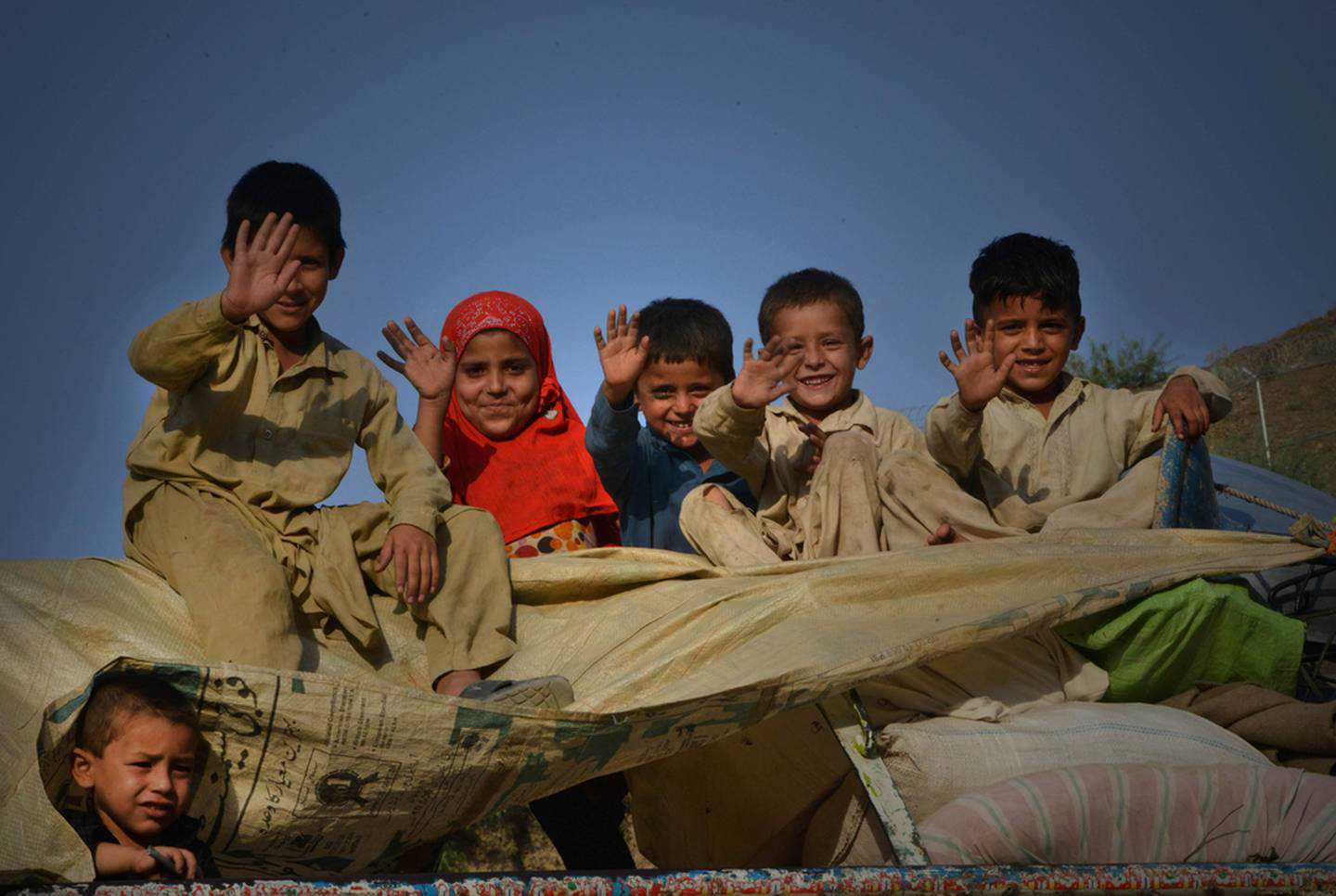Afghan children cling to lorries to be smuggled into Pakistan
15 September, 2021

Farid glances around furtively, trying to outsmart the Pakistani border guards. It’s a dangerous game of cat and mouse for the 11-year-old Afghan boy from Arzanah.
The Torkham border crossing in northern Pakistan lies along the famous Khyber Pass and is the direct link between Islamabad and Kabul. It is a major trade hub and the busiest crossing between Pakistan and Afghanistan.
Every day, dozens of young Afghan children attempt to smuggle themselves from Afghanistan into Pakistan by hiding in the undercarriages of lorries carrying sacks of goods, fresh fruits and vegetables.
They carry paan leaves, cigarettes and toiletries into Pakistan. Some of the goods can be sold on at a profit by traders as they've come in paying no customs duty. Other things not as readily available in Pakistan have been brought from Iran.
Some of the sacks are almost the same size as the children carrying them.
Today, Farid and his three cousins have made it over once, but they hope to make the trip back and forth multiple times.
It’s a short journey but a perilous one. They cling desperately to the moving lorries. Engine fumes, grease and dust all conspire to make them lose their grip.
The day before, a child was injured when he fell under a moving tyre, but Farid says he has no other choice.
“My father has died but my mother is still alive,” he tells The National as he hides near a border gate. He says it's now up to him to start providing for his family.
“Since we are poor, we come. If we weren’t, we wouldn’t come,” his younger cousin shouts over the noise of passing lorries.
Drought, conflict and food shortages have already left more than 14 million people suffering from hunger, the UN World Food Programme reported.
Many international institutions have already cut off Afghanistan’s access to international funds since the Taliban seized control of the country on March 15.
The US Federal Reserve, where much of Afghanistan’s foreign reserves are held, has frozen access to funds, and both the World Bank and the International Monetary Fund have shut their doors to the newly declared Islamic Emirate.
Farid and his cousins can make 1,000 Pakistani rupees (about $5) for every sack of goods they deliver.
It’s a lucrative market for an eleven-year-old.
The children claim they don’t know who gives them the sacks. All they’ll say is an anonymous man hands them over in Afghanistan and the delivery is made to an agent once they have made it to Pakistan.
“A person gives it to me and then goes away,” one of Farid’s cousins cryptically tells The National. He won’t say more.
Another lorry comes thundering past and the children run off in the hopes of climbing aboard and getting a free ride further into Torkham.
They wait for the lorry to slow enough so that they can slip between the tyres and then disappear into the hidden depths of the vehicle.
To end the journey, the children drop down and wait for the lorry to pass over them.
Like luggage passing along an airport conveyor belt, the mud flaps brush aside and the children magically appear. A quick rub of the eyes, a glance around and they’re off.
The newly placed Taliban border patrols don’t appear to be bothered by the stowaways, but the Pakistani border guards try to flush the children out once the lorry has stopped. The soldiers climb under the lorries with sticks and menacing shouts.
The lucky ones are caught and marched back across the border, only to try again. The unlucky ones are made to line up by the side of the road and wait, losing valuable smuggling time in the process.
The lorry drivers are ordered down by the Pakistani border guards and made to unlock any small containers or boxes.
“Daily, the children hide under the vehicle and cross the border,” one exasperated Afghan driver told The National. “They get hurt under the vehicle. They come to cross the border without permission, but the army sends them back.”
Waiting to cross the border can take days now that the Taliban have taken over and the newly declared government has yet to enact any crossing process.
For some of those watching the spectacle, the daily sight of the children outwitting the border guards is a moment of light relief. But Dr Sayed Abdullah of the Pakistan Afghan Friendship Hospital 100 metres from the border crossing doesn’t find it amusing.
“The Taliban and Pakistan army only allow us to see 20 patients a day, despite being able to see at least 35 or more. The injured children use up these spaces, which could be avoided if the guards on the other side stopped them,” he said.
The World Bank reported that a little under half of Afghanistan’s GDP came from international aid during the republic. Until an internationally recognised government is formed in Kabul, the economic situation in Afghanistan is only going to deteriorate.
UN General Secretary Antonio Guterres on Monday described the situation in Afghanistan as “one of the worst humanitarian crises in the world".
For now, the children making this perilous journey each day have no other option.
For Farid and his cousins, the reason is painfully simple.
“Because of poverty we do this.”
Source: www.thenationalnews.com
TAG(s):
